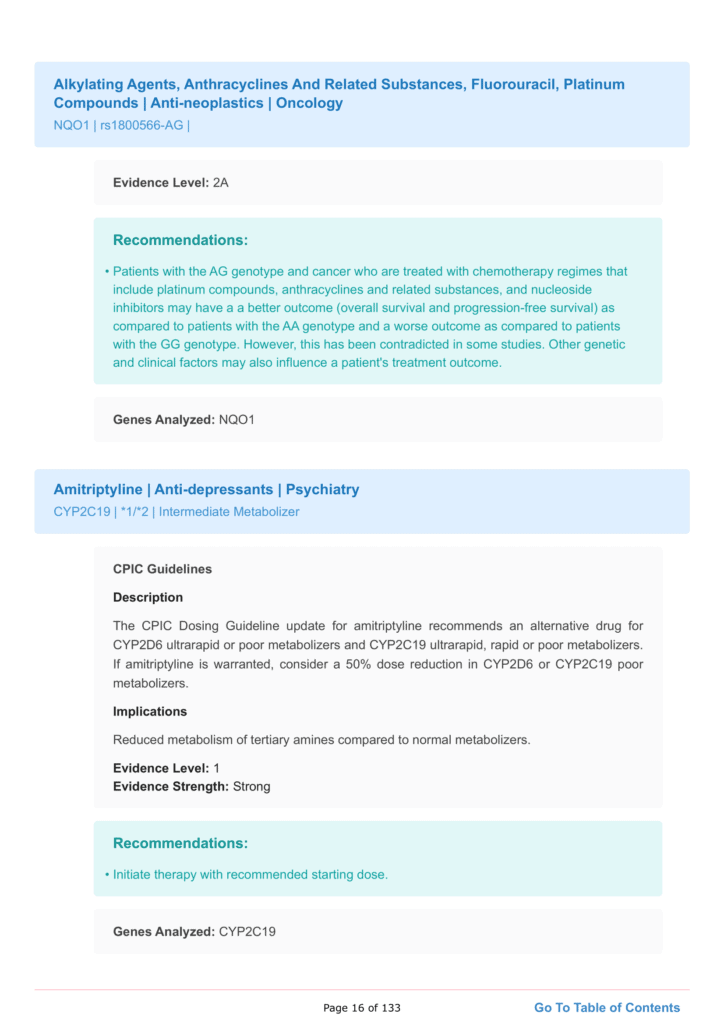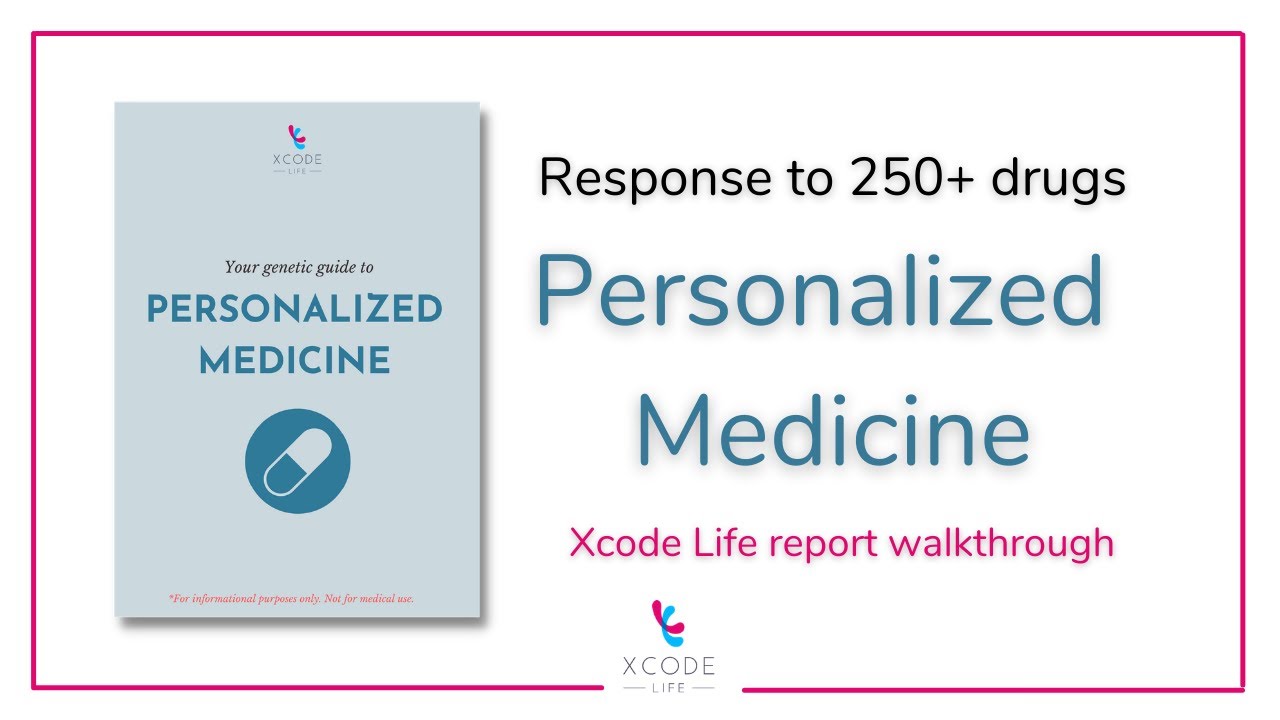Xcode Life’s Personalized Medicine report targets genes that are associated with your response to drug therapies. This will help your physician understand your metabolic responses and prescribe the right drug.
Personalized Medicine: An Introduction
Your genes produce drug-metabolizing enzymes, drug targets, and other proteins related to the action of drugs. Each individual has a unique genetic makeup. Hence, they might respond differently to certain medications.
Pharmacogenomic tests provide information about a person’s genetic makeup to help the physician decide which medications and what doses might work best for him or her. It also helps to reduce the cost and time associated with a trial-and-error approach to treatment.
Some interesting facts about genes and your medications:
- Adverse Drug Reactions (ADRs) are estimated to be between the 4th and 6th leading cause of death in the US.
- 75% of patients have detectable changes in their DNA that impact drug metabolism 100+ drugs carry product label FDA guidance on pharmacogenetic testing
- The CYP2D6 gene processes 25% of all cytochrome-metabolized drugs.
- Research on the benefits of pharmacogenomic recommendations in the long-term care of patients showed that nearly 50% of the patients had to change one to three drugs, with significant estimated savings annually.
- Codeine, a commonly used pain medication, is poorly metabolized by CYP2D6 ultra-rapid metabolizers. These individuals may experience symptoms of extreme sleepiness, shallow breathing, and even confusion. They may not have sufficient relief from pain as they will be unable to convert codeine into its active form.
- In a recent review conducted by King’s College London, thirty-three economic evaluations (75%) supported PGx-guided treatment, 11 studies (25%) found PGx cost-effective, and 22 studies (50%) showed that it was dominant and cost-saving.
- In a study conducted by the Medical University of Vienna, the fraction of patients with an actionable genetic profile was 69% for warfarin, 28.5% for clopidogrel, 23% for tacrolimus, 25.7% for simvastatin, and 9.1% for thiopurines.
Personalized Medicine Report
The report can be used to optimize therapy for nearly 200 commonly prescribed drugs in multiple treatment categories,including statins, platelet aggregation inhibitors, biguanides, sulfonylureas, anticoagulants, beta blockers, antihypertensives, proton pump inhibitors, non-steroidal anti-inflammatory drugs, and antiarrhythmics.
The results of this report can be used as a supplement to the clinical decision-making process and reduce the cost and time associated with a trial-and-error treatment. In this report, we profile gene variants that influence your metabolic response to various drug therapies.
Based on the results of your genetic test, the report provides an insight into your genetic type.
The drugs are classified into various categories that include:
- Antidepressants - used to treat depression and anxiety symptoms
- Antipsychotics - primarily used to treat bipolar disorder and schizophrenia
- Anti-retroviral - used to treat HIV
- Immunosuppressants - used to treat autoimmune diseases like multiple sclerosis
- Antineoplastics - used to prevent the growth and spread of tumors
- Antiarrhythmics - used to correct the rhythm of the heart
- NSAIDs - commonly used as pain relievers
Depending on the gene type you carry, your metabolizer status is assigned for each drug. Normal or extensive metabolizers break down drugs at a normal rate. These people are likely to metabolize the drugs normally and experience the intended effect of the drug.
Poor metabolizers break down the drugs at a much slower than normal rate. The standard doses may not be as effective for them. They also may experience undesired side effects.
Ultra-rapid metabolizers break down drugs at a faster than normal rate. As a result, they may experience some undesirable side effects. They may also require a higher dosage of the drug.
The evidence level and strength are also mentioned, along with the gene analyzed in relation to drug metabolism. Treatment and dosage recommendations are provided for each drug covered in the report.
What are the traits covered in this report?
The report analyzes your response to 270+ drugs, including ACE Inhibitors, Caffeine, Carbamazepine, Codeine, Fentanyl, Ibuprofen, Metformin, Morphine, Selective serotonin reuptake inhibitors, Simvastatin, Tamoxifen, and Warfarin. For a comprehensive list of the traits covered, click here.







